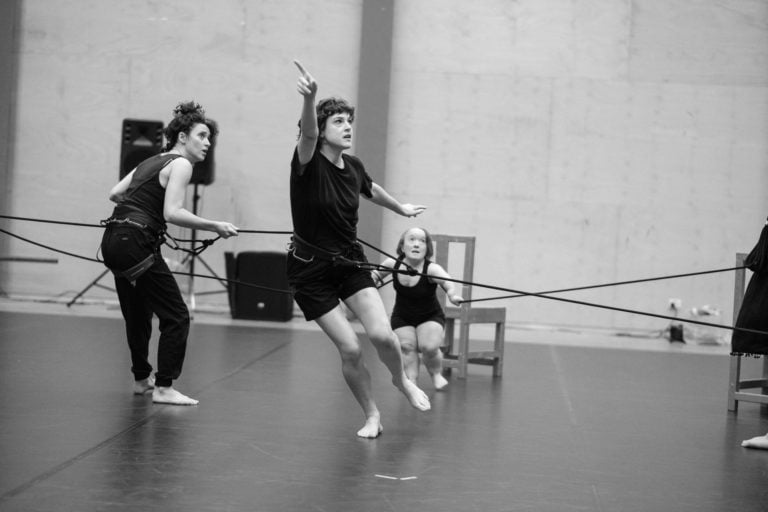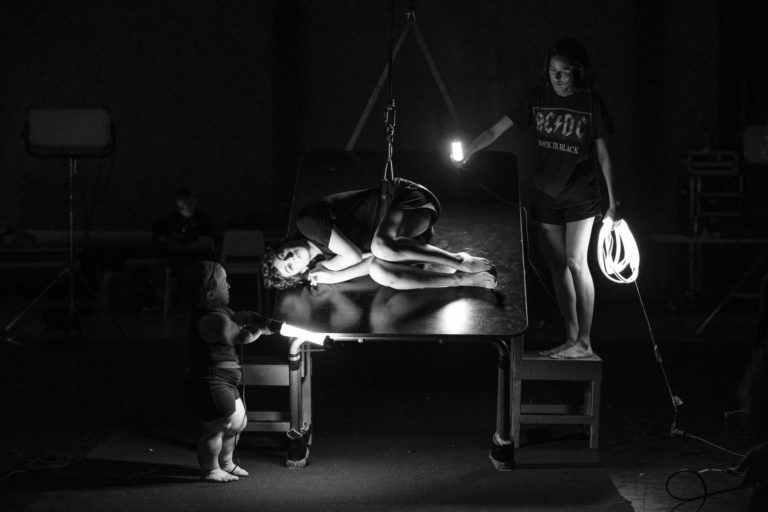Talented Greek actress and writer, Victoria Haralabidou is widely known for her lead role in the Greek film “Brides”, directed by Pantelis Voulgaris which granted her the best actress award in 2004.
A year later, she set off to Australia where she has been living for the past fifteen years. Since then she has participated in several films and television series, and has also started writing her own plays. We have seen her in the adaptation of Christos Tsiolkas’ ‘Barracuda’, and a few weeks ago she finished shooting for the Wakefield series for ABC.
Genuine and down to earth, Ms Haralabidou responds to the call of adventure, leaving behind certainty to carve a new path and discover new lands, following her heart and her instinct, whether it’s about life decisions or choosing the roles.
A recent example, was her participation in the outstanding short film “I want to make a film about women”, directed by Karen Pearlman, which has already won three awards and has been nominated for the AACTA short film award (Australian Academy of Cinema and Television).
“There are some projects that come to me, and I need to decide whether I will participate. When it is artistic and I see someone like Karen Pearlman put everything in it, heart and soul, then I say yes. I respect that passion and dedication, and I want to help and be part of it,” Victoria Haralabidou told Neos Kosmos.
READ MORE: Double shot at stardom
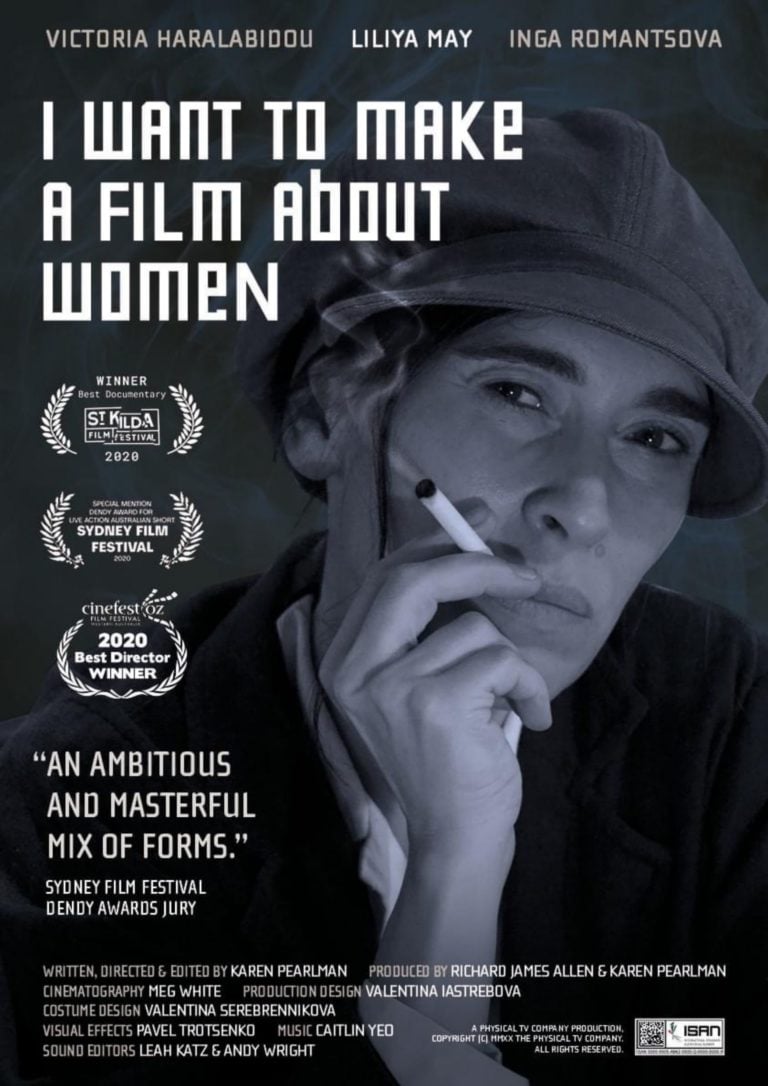
In the film “I want to make a film about women”, Ms Haralabidou has the lead role, playing Esfir Shub, a pioneering Soviet filmmaker who became involved in the Soviet avant-garde world and specifically in the constructivist movement.
Alongside her friend, Sergei Eisenstein, another pioneer of that period, her name is hardly known today, though her contribution to cinematography and montage, is equally important.
Just as Esfir Shub wanted to make a film about women, with her script “Women” in 1933–34, in which she examines women’s roles throughout history, Ms Pearlman comes full circle dedicating a film to Esfir Shub and the women she imagines contributed to the history of cinema.
She responded to our questions regarding her experience in filmmaking and life Down Under.
In her film, Karen Pearlman highlights the women’s frustration to be rid of the labels that essentially undermine their work. We have all endured the constrictions of such labels, which express some form of prejudice, whether it is due to our gender or our race.
I believe that this human tendency is rooted in fear. It is the need for people to label and categorise the other so they can understand them. And in trying to understand them, the questions they ask often do not paint the true picture. Human nature is much more complicated.
Our need to put others in a category so we can see them through our own lens often limits our understanding.
I too, was much more categorical when I was young (like most of us I believe). Now with my son, whose character is so different to mine, when I try to explain the world to him, I want to show him that things are not black or white; often there is a lot of grey area. I find art very useful in understanding and seeing what makes others tick. That is why I take my son, Leonidas, with me to various artistic events.
Do you believe that many important women are forgotten in history, just like Esfir Shub?
Certainly, many women’s names have been buried in the past and we need to search to find them. Women that inspire us, women we can identify with on the screen, dynamic women, flawed women. If we search, we will find them. Behind every Eisenstein there is an Esfir Shub, of whom even I didn’t know about.
I guess it all depends also where we are living in this world. There’s a saying, I don’t know if I believe it or not, but it’s something that comes to mind. ‘Men are afraid women are going to laugh at them, and women are afraid that men are going to kill them’. I am raising a young boy, and I hope he is not afraid of being laughed at, and that he finds the strength to express his emotions, his sadness, and those labels that say ‘Men don’t cry’ cease to be important.
READ MORE: Medea in the era of #MeToo
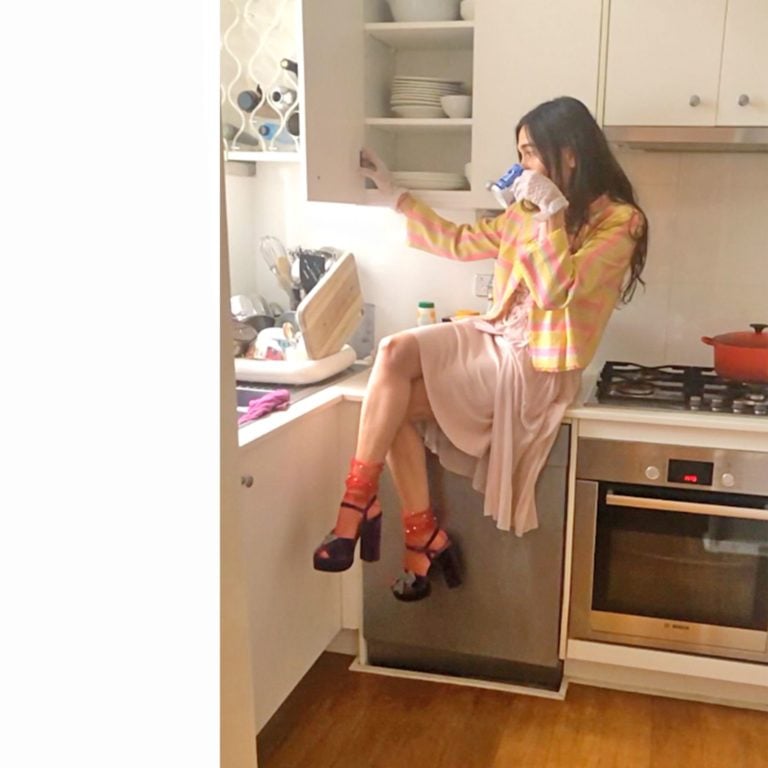
As an actress, having to immerse yourself into different roles, you probably discover other lives, other thoughts and perhaps you gain a deeper understanding of human nature and discover all that ‘grey’.
When you are young, you think you know everything. As you grow older, you come to understand the truth of what Leonardo da Vinci says. “The deeper I dig, the bigger the hole I’m in”. The older I get I realise that I don’t understand anything. That’s why there is so much grey. The more I search the deeper the hole, but I believe that it’s necessary..
You were born in St Petersburg. At the age of 15 you move to Greece with your family where later on your acting career takes off with your role in “Brides”. And yet, a year later you move to Australia. What drives you?
Perhaps what I will say is somewhat cliché. It’s in our blood. We have been uprooted for generations. My grandfather left Trapezounda when he was 10 years old. My mother’s father joined the antartiko. Hearing all these stories growing up, planted in me a sense of adventure and challenge. I have never experienced the exile my grandfather and father had to endure when they were forced to leave everything behind, but I listened to their stories.
Why did I leave Greece when I was older? Because, quite simply, I like a challenge, and I think I was so naive that I didn’t think it was such a big deal. When I did “Brides”, in my mind I saw that my life was taking on a certain course. I didn’t want that. You need to discover new things, live new experiences.
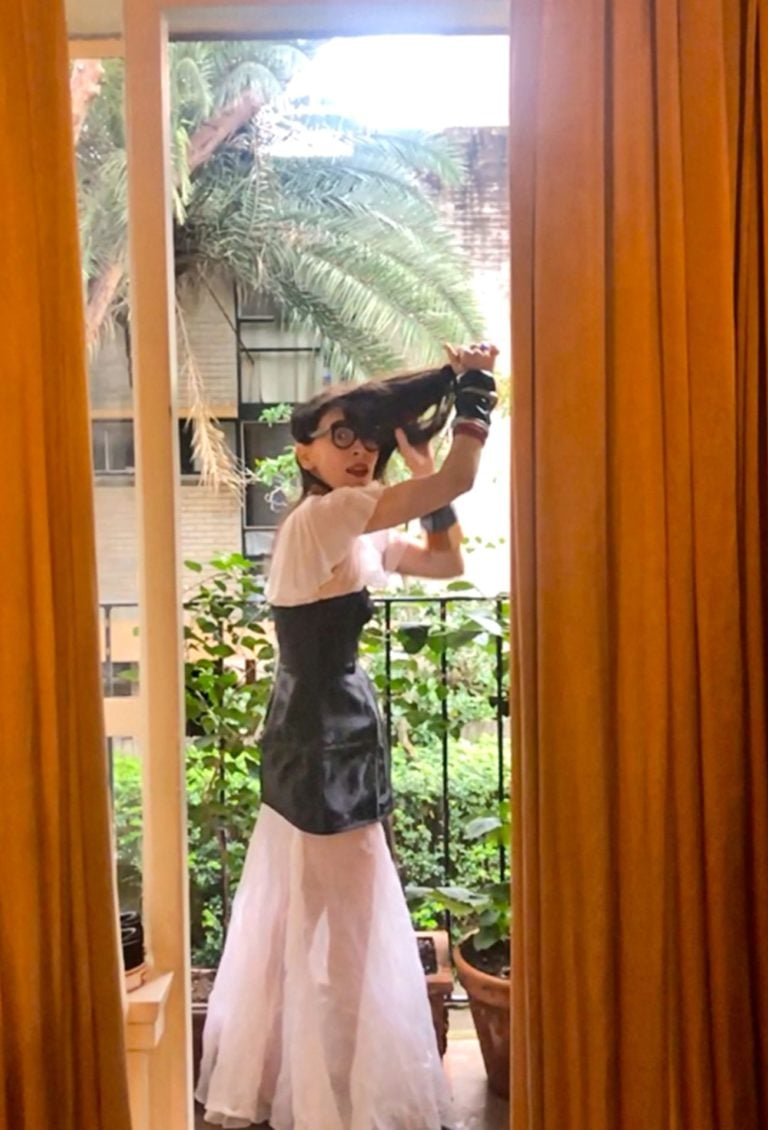
It takes some courage to abandon your comfort zone for the unknown. To rebuild a network and find yourself in all that, even if you have a strong background.
I moved to Greece when I was in the third year of high school without knowing the language. When I did “Brides”, I understood that even though I started from scratch I succeeded. So why not aim for something more? Of course, you need to be a bit naïve, and a little bit out there! It is important to be able to imagine the future without losing sight of the present and to be sure that you can deal with it, the ‘sirens’ call’. I have the foundations, the basis, and I know I can.
I do not like questions that delve into my sense of belonging. I do not know. All my past, my home in the Soviet Union, Trapezounta. All that is gone and you need to continue and move on. I tell stories, I write, I act, and I think, going back to another question, that growing up as an actor and exploring the role you see more grey. I think as a human being it has done me a great deal of good that I left when I did.
Is there a role from literature or the cinema that you would love to play one day?
There are roles that have been done and done well. I always look in the future and I am excited by new writers around the world. I want to write my own plays that are inspired by the past. I want to write for and about women.
If you could bring to Australia, one thing from Greece and one thing from Russia, what would it be?
I sort of brought one thing/person from Russia and Greece. Myself. As for what I miss most from these places, it is my people. My family and friends. Spending hours talking to people and creating things. And my memories. But those stay with me.”
READ MORE: Celebrating 60 years since the arrival of the Greek «ΝΥΦΕΣ» in Australia
Victoria Haralabidou experiments, explores and transforms herself as she discovers new aspects in her life and art, and she is not one to shy away from a challenge.
Writing has played a huge part in her life since arriving to Sydney. Her first play ‘One Scientific Mystery or Why did the aborigines eat Captain Cook?‘ explores the fleeting human relationships and the need for contact, and appeared on the Sydney stage.
Recently her play GRLZ was selected for the workshop with Playwriting Australia.
“GRLZ follows a group of misfits, siloed from society for being different. Every morning the girls practice vigorous exercises, preparing for a showcase for visiting Western monitors. In a world where performance is necessary for survival, they will learn how a moment in the spotlight can be a radical act. Death-defying, imaginative and urgent, GRLZ straddles both the epic and intimate”.
See more about this fascinating play on www.grlz.com.au
